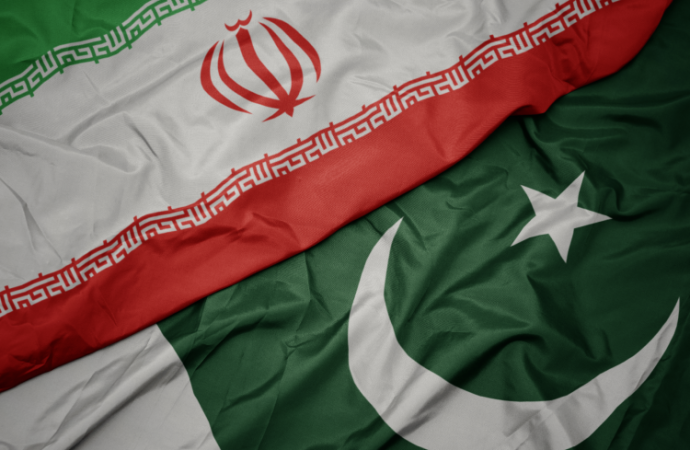Author Recent Posts Syed Basim Raza Latest posts by Syed Basim Raza (see all) SCO Tianjin Summit and the shifting balance of power – October 1, 2025 What can be done to save the future of Pakistan’s Northern Communities amidst Climate disasters? – September 10, 2025 Is Israel using starvation as a tool of Genocide
Pakistan must draw strategic lessons from the 12-day Iran-Israel war of June 2025 that ended with a ceasefire brokered by the US. Pakistan must treat this conflict as a strategic stress test. Three core lessons are to be taken: the fragility of regional stability, the limits of traditional deterrence, and the centrality of balanced diplomacy. The sudden confrontation and its regional ripple effects pose key challenges and opportunities for Islamabad. Pakistan faces a complex balance: managing ties with Iran, maintaining an alliance with the US, and safeguarding internal security, all while navigating a volatile Middle East region. What should Pakistan learn and adopt in its strategic playbook?
Pakistan watched the conflict with alarm as Israel’s “Operation Rising Lion” and “Red Wedding” struck deep into Iran’s nuclear program, killing dozens of high-ranking officials and scientists, followed by Iran’s missile salvoes targeting Israeli cities and Military Infrastructure buried within these cities. Over 1,000 Iranians and nearly 30 Israelis (a figure highly disputed due to media blockade) were killed, with thousands wounded and many more displaced. Islamabad felt immediate ripple effects: it shuttered five border crossings, repatriated over 500 pilgrims and foreign students, and increased security along the Iran–Pakistan frontier.
The regional stability is far more fragile than most analysts assumed. A 12 day war between two major regional powers can trigger border shutdowns, refugee flows, cyber warfare, and spillovers from militias and proxies. Pakistan’s southwest provinces are particularly vulnerable to cross-border violence if Iran’s internal instability worsens. Islamabad must beef up frontier management and crisis response readiness—from rapid border closure protocols to evacuation and intelligence sharing frameworks. Military planners should incorporate such contingencies into war games and joint operations with frontier security agencies.
Nuclear doctrines and deterrence regimes must evolve beyond static doctrines. The conflation of nuclear arsenals with conventional deterrence was challenged during this crisis. Many Israeli strategists suggested that the next attack should be against Pakistan’s nuclear arsenal, to which a chatter on social media emerged about Pakistan’s stance to retaliate with nukes if Israel attacks Iran with nukes. Islamabad swiftly refuted the claim, reinforcing its India-centric nuclear posture. Pakistan must reemphasize strategic clarity: avoid entanglement in Far Middle East crises and reaffirm that nuclear weapons serve solely to deter existential threats in South Asia. Islamabad should also modernize its nuclear posture, perhaps signaling “minimum credible deterrence” to regional audiences to reduce misperception and escalation risk.
Diplomacy must be nimble and calibrated. Islamabad’s stance during the war reflected this: it offered rhetorical and diplomatic support to Tehran, resisted domestic pressure for deeper involvement, and abstained from military support. The Pakistani leadership engaged Washington and Tehran quietly, treading a fine line. This dual track diplomacy, quiet messaging to Washington to preserve strategic ties and to Iran to uphold regional Muslim solidarity, is precisely the template Pakistan must use going forward. The success of this approach is evident by Tehran’s appreciation, even after a US-brokered ceasefire aligned regional interests.
Internal cohesion is also key. The eruption of cyber warfare during the war, over 70 hacktivist groups conducted Distributed Denial of Service (DDoS) attacks and defacements on both sides, should be a warning for Pakistan’s digital defenses. Islamabad must elevate cyber readiness, fortify critical infrastructure, and coordinate cyber security with allies.
Pakistan should engage regionally to build early warning and conflict management coalitions. South Asia lacks structured mechanisms for signaling and de-escalation in times of Middle Eastern flare-ups. Islamabad should propose diplomatic initiatives through OIC, ECO, or SCO to institutionalize communications channels that could alert regional capitals quickly and coordinate responses, including humanitarian assistance, border management, and refugee assistance.
Energy and communication are two key lessons Pakistan must act on. The war pushed up global oil prices as fears grew over a possible blockade of the Strait of Hormuz. Pakistan should reduce its reliance on imported oil, sign stable long-term energy deals, and invest more in renewable sources to protect its economy from such shocks. At the same time, the government shared clear messages during the crisis—supporting Iran, rejecting violations of sovereignty, and calling for regional peace. These messages helped calm the public and avoid pressure for military involvement. Pakistan now needs to improve how it shares information during crises to keep people informed and maintain trust.
Looking ahead, Pakistan should build a national regional security doctrine—a playbook that defines the limits of its engagement in front-line Middle Eastern conflicts. This doctrine should include a clearly defined nuclear posture that remains firmly rooted in South Asia, avoiding entanglement in distant theaters. It must also incorporate advanced crisis simulations and cross-border emergency response plans to ensure rapid and coordinated action during regional flare-ups. A well-calibrated diplomatic model is essential to balance relations with global powers and neighboring states, particularly during times of heightened tension. In parallel, Islamabad should establish cyber posture escalation protocols to address the growing threat of digital warfare. Finally, the doctrine must include public messaging guidelines to manage domestic expectations and defuse calls for radical action. Together, these elements would provide Pakistan with a resilient and adaptive security framework to navigate future regional crises effectively.
Pakistan cannot afford strategic ambiguity when a 12 day Iran Israel war spurs global shock waves. Islamabad’s measured approach in June 2025 reflects both acute awareness and strategic caution. Now comes the time to translate these ad hoc adjustments into a formal strategy. Doing that will enable Pakistan to safeguard security, preserve flexibility, and avoid becoming collateral damage in geopolitics far from its shores.
- SCO Tianjin Summit and the shifting balance of power - October 1, 2025
- What can be done to save the future of Pakistan’s Northern Communities amidst Climate disasters? - September 10, 2025
- Is Israel using starvation as a tool of Genocide in Gaza? - August 28, 2025






















Leave a Comment
Your email address will not be published. Required fields are marked with *